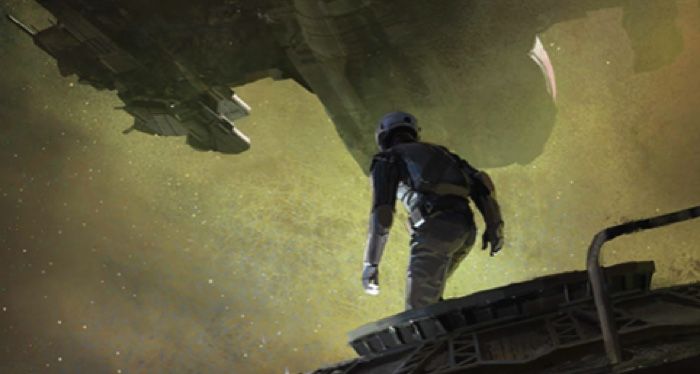
Cosmic Greatness: 21 of the Best Award-Winning Sci-Fi Books
Awards season is so fun. The red carpets, the glamorous outfits, the A-list authors. Oh, did you think I meant those other awards? This is Book Riot. We know what we’re about: award-winning sci-fi books.
With science fiction, two awards always jump out as the big ones: the Hugo and Nebula. Each year, the Hugo Award is nominated and chosen by the attendees of the World Science Fiction Convention, while the Nebula Award is decided by the Science Fiction and Fantasy Writers of America members. While they’re the biggies, they aren’t the only game in town.
I’ve also included the Arthur C. Clarke and British Science Fiction Association (BSFA) awards for sci-fi novels first published in the UK. And I couldn’t forget the Philip K. Dick Award given at Norwescon each year. To really spice things up, I’ve included winners of the Gaylactic Spectrum Award for books that explore LGBT topics positively and the Otherwise Award for books that explore gender.
Needless to say, there are some big-name books on this list, but also some that you may not have heard of. But each one is one of the best award-winning sci-fi books and well worth your reading time.
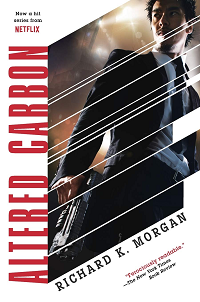
Altered Carbon by Richard K. Morgan (Philip K. Dick Award, 2003)
This book from Richard Morgan sparked a great, if short-lived, Netflix series. Takeshi Kovacs is an ex–United Nations envoy long dead. Except in this galaxy, people back up their minds, and so Takeshi wakes up in a new body, on a different planet, and given a dangerous mission from even more dangerous people.
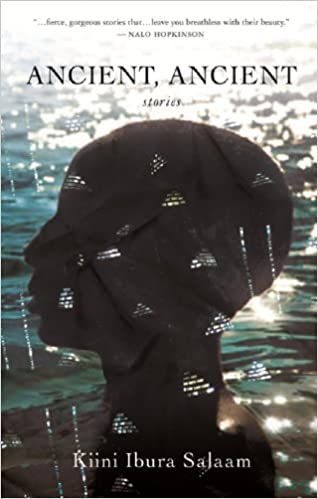
Ancient, Ancient: Short Fiction by Kiini Ibura Salaam (Otherwise Award, 2012)
Kiini Ibura Salaam is an essayist and writer of brilliant science fiction and fantasy short stories. This book collects several of the latter, all of which use magic and science and sexuality to challenge gender, myth, and the very nature of magic.
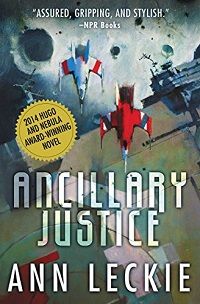
Ancillary Justice by Ann Leckie (BFSA Award, Arthur C. Clarke Award, Hugo Award, Nebula Award, 2013/2014)
Do you see that list of awards? Ann Leckie burst onto the scene with Ancillary Justice, sweeping up awards like a Dyson. Justice of Toren was once a colossal starship, now a single ancillary — an AI in a human body — is all that remains. She’s determined to find out how the rest of her was destroyed and might unravel a galactic empire in the process.
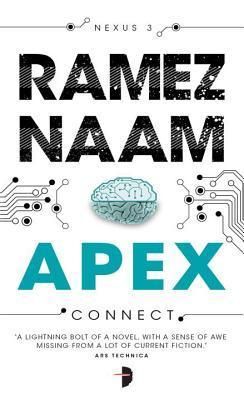
Apex by Ramez Naam (Philip K. Dick Award, 2015)
This novel concludes Naam’s explosive Nexus Arc trilogy in an award-winning fashion. After you read Nexus and Crux, dive into this post-humanist novel in which people are connected, linking up like hive minds, and the next apex species has finally arrived.
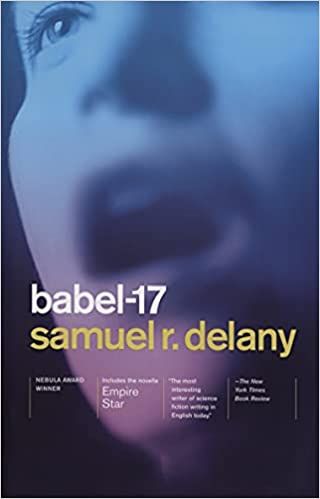
Babel-17 by Samuel R. Delany (Nebula Award, 1967)
While Delany might be better known for his novel Dhalgren, don’t sleep on Babel-17. Rydra is a poet with near-telepathic powers. When a new weapon based on sound enters the fray in a giant galactic war, the military calls in Rydra. She soon recognizes a language in that sound, but that’s only the beginning of what she’ll uncover.
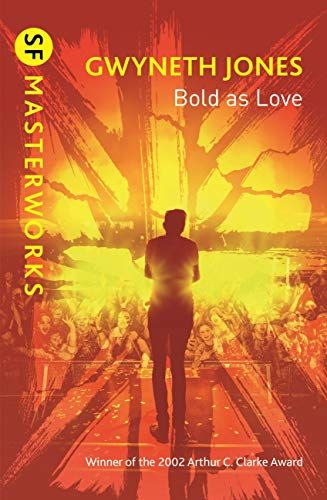
Bold as Love by Gwyneth Jones (Arthur C. Clarke Award, 2002)
This rock-and-roll-cyberpunk novel hasn’t gotten nearly enough attention. In a near-future England, a rock star befriends a guitarist and a techno-wizard against a backdrop of corruption and music festivals. But as this book and series roll along, something like a science fiction Arthurian retelling comes to life.
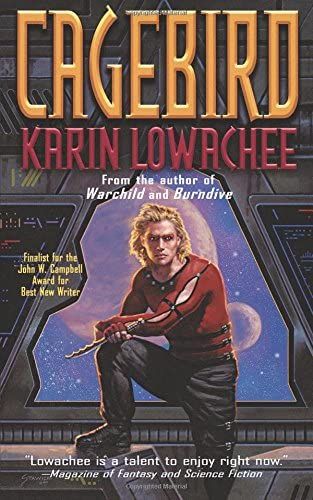
Cagebird by Karin Lowachee (Gaylactic Spectrum Award, 2006)
Yuri Terisov is wasting away in the brig of a pirate ship that he used to command. After aliens destroyed his home colony when he was 4, he was living in a refugee camp until a pirate came and took him away. But now he’s in the brig, at least until a military black ops agent offers him a way out. There are strings attached, of course. Dangerous strings.
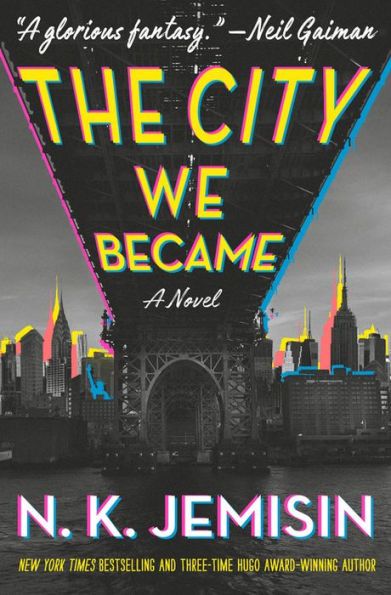
The City We Became by N.K. Jemisin (BSFA Award, 2020)
N.K. Jemisin is well-known for her Broken Earth trilogy, but that’s fantasy. These are the best award-winning sci-fi books. In The City We Became, New York City is a living life form with six children: the city and its five boroughs. In Brooklyn, a politician can hear the song this great city sings. In Manhattan, a student steps off a train and remembers nothing about himself, but he can feel the pulse of the city. Characters and city combine for a cool exploration.
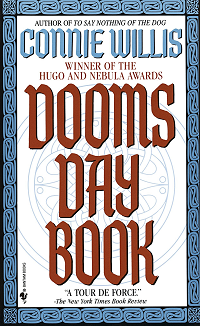
Doomsday Book by Connie Willis (Hugo Award, Nebula Award, 1993)
Time travel and both of the major science fiction awards? This classic has it all. Kivrin is a 21st-century student studying a 14th-century plague. Oh, and she uses time travel to do it. But things go wrong, however, forcing Kivrin’s fellows to launch a rescue attempt. Now Kivrin’s vow to not change the past is conflicting with her ability to save it.
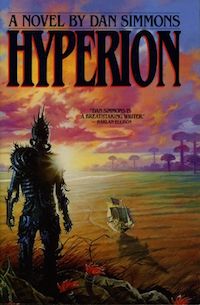
Hyperion by Dan Simmons (Hugo Award, 1990)
Sometimes award-winning sci-fi books can be based on classics like this. Canterbury Tales…in space. That’s the setup magnificently executed in this novel. Seven pilgrims are journeying to Hyperion on the eve of the end of everything. On Hyperion live the Shrike, creatures that are worshipped and feared. These pilgrims have their tales, their secrets, and one may change the course of human history.
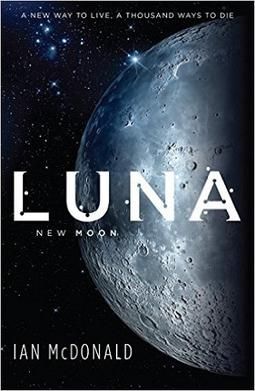
Luna: New Moon by Ian McDonald (Gaylactic Spectrum Award, 2016)
Living on the moon is hard. Taking over a massive company and building it into an empire on the moon? Even harder. But Adriana Corta did it. Now, as her life nears its end, her five children must fight to keep that company going. They’ll have to fight outsiders and each other. Should be fun.
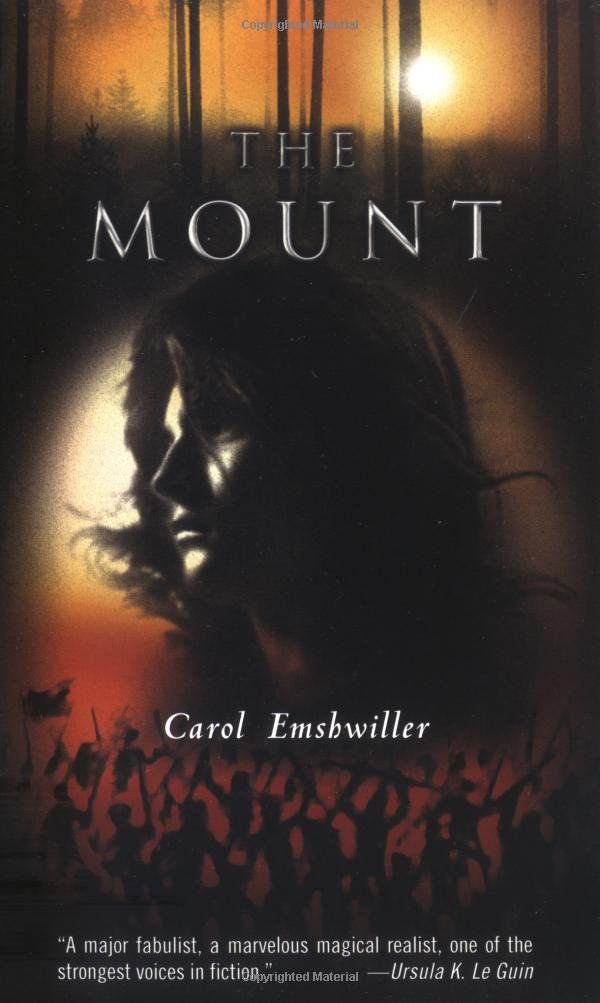
The Mount by Carol Emshwiller (Philip K. Dick Award, 2002)
Looking for oppressive aliens and anti-utopian themes? Look no further. Charley wants to be the fastest runner in the world, just like his father. But Charley doesn’t run at track and field meets. He’s a mount for the Hoot, an alien invader. If he ever wants his freedom, he’ll need to find the other free humans and understand what that even means.
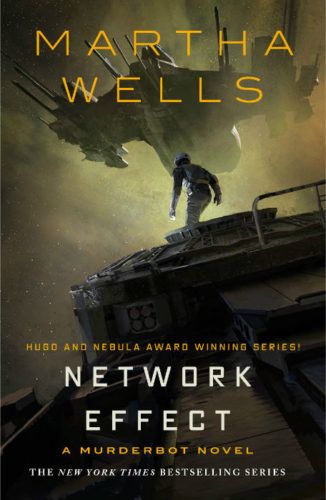
Network Effect by Martha Wells (Hugo Award, Nebula Award, 2021)
It’s hard to overstate just how good Martha Wells’s Murderbot Diaries series is. So when she released the fourth book, which also happened to be the first novel-length book in the series, of course it grabbed both of the big awards. Murderbot is a robot with an A.I. that, well, just wants to kill people. But their human associates are just always so needy, even when Murderbot just wants to sit at home and watch TV.
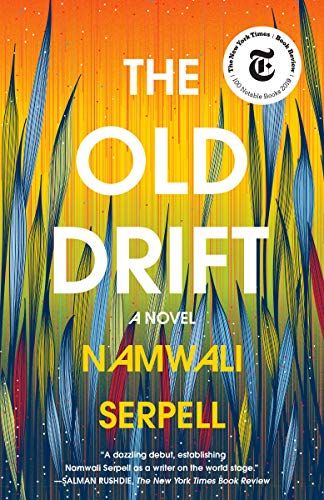
The Old Drift by Namwali Serpell (Arthur C. Clarke Award, 2020)
Namwali Serpell took the world by storm with her debut novel. Beginning in 1904, a feud breaks out between three Zambian families, and thus begins this tale of retribution that spans generations, out of the past and all the way into the future. Romance, history, fairytale, and science fiction all blend together in this one.
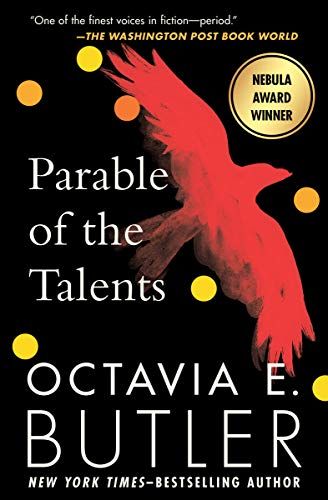
Parable of the Talents by Octavia Butler (Nebula Award, 2000)
Octavia Butler’s Parable of the Sower is a book I recommend often, though this sequel was the one to win a Nebula Award. Having survived the destruction of her home and founded a new religion, Lauren has established a peaceful community. But when an ultra-conservative president takes power, his followers see Lauren’s people as a target.
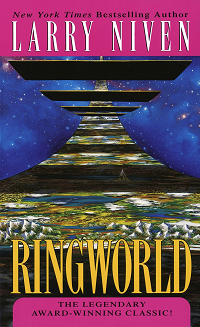
Ringworld by Larry Niven (Hugo Award, Nebula Award, 1971)
This highly imaginative, hard sci-fi adventure set the genre world on fire in 1971 and still holds up today. Louis Wu is given a job to visit Ringworld, an artificially constructed ring the diameter of Earth’s orbit. Along with a couple of aliens and a woman named Teela, they soon crash land on the ring and start unraveling its mysteries as they desperately try to find a way off of it.
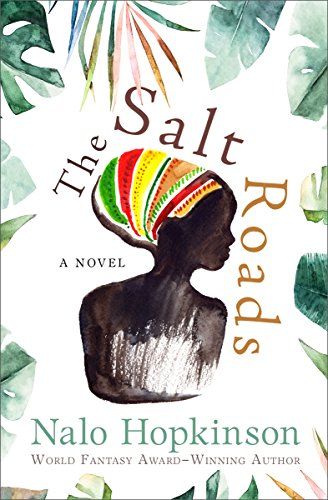
The Salt Roads by Nalo Hopkinson (Gaylactic Spectrum Awards, 2004)
This incredible novel blends fantasy, science fiction, and astute observations of social issues into a novel that should have won even more awards. Ezili has the powers of an Afro-Caribbean goddess of sexual desire and love. Now she’s traveling time and space to inhabit other women, struggling against a man’s world and unaware of this holy presence.
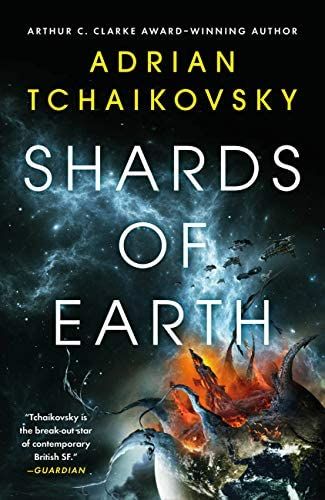
Shards of the Earth by Adrian Tchaikovsky (BFSA Award, 2021)
Idris was created during the war after Earth was destroyed. Strong, fast, not needing sleep, and able to communicate telepathically with each other and the enemy: the Architects. But when the Architects vanished, people like Idris became obsolete. But something strange has appeared in space, obviously made by the Architects. Now Idris and his crew will have to find answers.
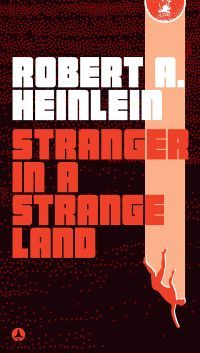
Stranger in a Strange Land by Robert A. Heinlein (Hugo Award, 1962)
Here’s another one from the way-back machine that wasn’t just part of the pantheon of award-winning sci-fi books, but part of a sexual revolution. Valentine Michael Smith is a human raised on Mars by Martians. His homecoming is a heralded event. When he starts to display powers no other human has and espouses a radical philosophy, the world will never be the same.
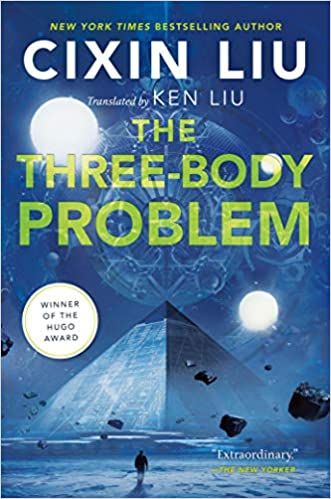
The Three-Body Problem by Cixin Liu (Hugo Award, 2015)
This book, which begins a series, has captured sci-fi imaginations since it came out, and it’s soon coming to Netflix. In the midst of the Chinese Cultural Revolution, an experiment sends a message to space. An alien species facing their own destruction receives it and plans to invade Earth. Now, as the invaders close in, humanity is crumbling into even more factions.
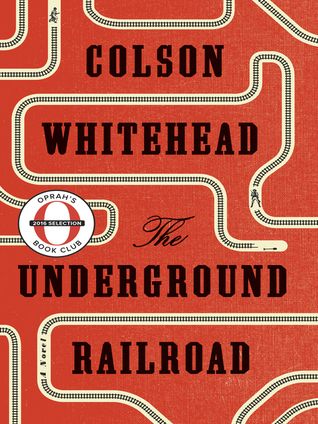
The Underground Railroad by Colson Whitehead (Arthur C. Clarke Award, 2017)
It’s a rare thing for a science fiction novel to also be historical, and this novel did it with aplomb. Imagine that the Underground Railroad during the American Civil War was a LITERAL underground railroad. That’s what this novel does. The genre is speculative. The human drama and tragedy of slavery are very real.
Do you still crave more award-winning sci-fi books? We have lists of 20 of the best as well as a huge list of the most influential sci-fi books ever. Check them out!


